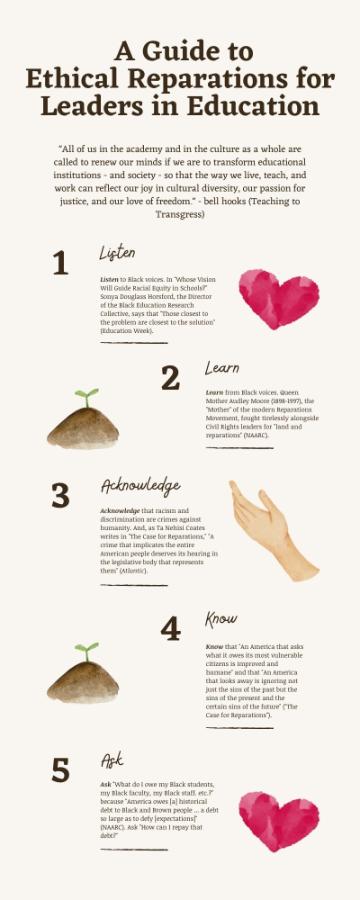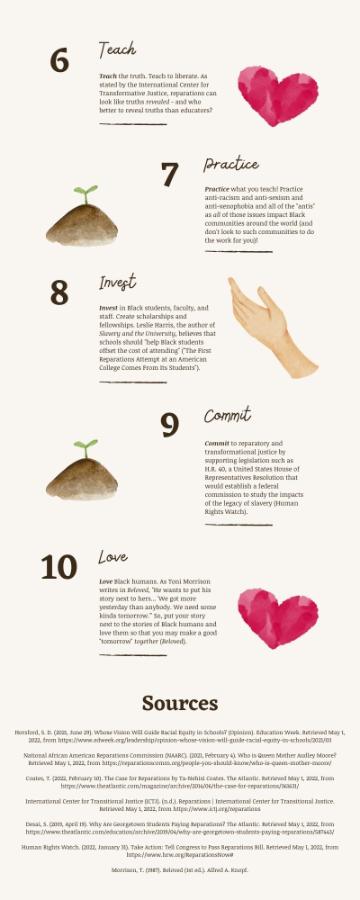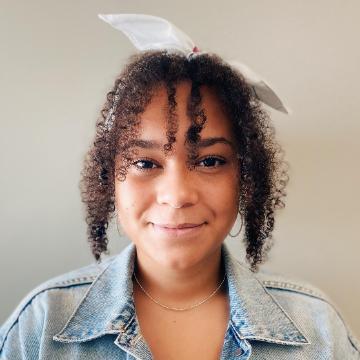Grace Evans '23, a Political Science and Ethnic Studies double major, is a 2021-22 Hackworth Fellow at the Markkula Center for Applied Ethics. Views are her own.

Throughout the COVID-19 pandemic, my Dad traced the roots of our family’s tree and he discovered that his great, great, great, great Grandmother—my great, great, great, great, great Grandmother—was stolen and taken to Barbados where she became a slave. As a Hackworth Fellow, I researched reparations (amends) with regard to Black people and I created a Guide to Ethical Reparations for Leaders in Education everywhere as I believe that education is the best way to go about reparatory justice. And, I’m not the only one who believes that. As you can see, the guide begins with an epigraph, a quote by Bell Hooks: “All of us in the academy and in the culture as a whole are called to renew our minds if we are to transform educational institutions - and society - so that the way we live, teach, and work can reflect our joy in cultural diversity, our passion for justice, and our love of freedom." Bell Hooks’ book, Teaching to Transgress, is wonderful and I recommend it to anyone who teaches. The guide’s ten points are, in order: “Listen,” “Learn,” “Acknowledge,” “Know,” “Ask,” “Teach,” “Practice,” “Invest,” “Commit,” and “Love” — it is my hope that the guide inspires leaders in education everywhere to commit to reparatory justice as it’s short, it’s easy to read, it’s actionable, and its thesis is that reparations are practicable.

View Grace's project presentation.
About Grace Evans

"Grace Evans '23 is a Political Science and Ethnic Studies double major from Austin, Texas. This year, she challenged herself to read two books a month, one fictional book and one non-fictional book. What she has found is that books from both genres have increased her understanding of our world - of people, of politics, and of power. Speaking of power, she believes that we all have power, that we all have powers. One of her powers is empathy. Like education, empathy is a gift that empowers us to know and to love. And so she is applying empathy to research about the ethics of reparations. She is interested in the “Five Ws”: who, what, where, when, and why and she hopes to answer the questions on all of our minds: “What do reparations look like?” and “Can reparations repair the fabric of our country, a fabric torn by centuries of racism and discrimination?”
On campus, she is involved with Together for Ladies of Color (TLC), the Office for Multicultural Learning (OML), and the Sociopolitical Citizenship Participatory Action Research Team (SC-PAR). At home, when she is not with her friends or family, she is at a park with her two dogs (Skip and Izzy) and a good book."
